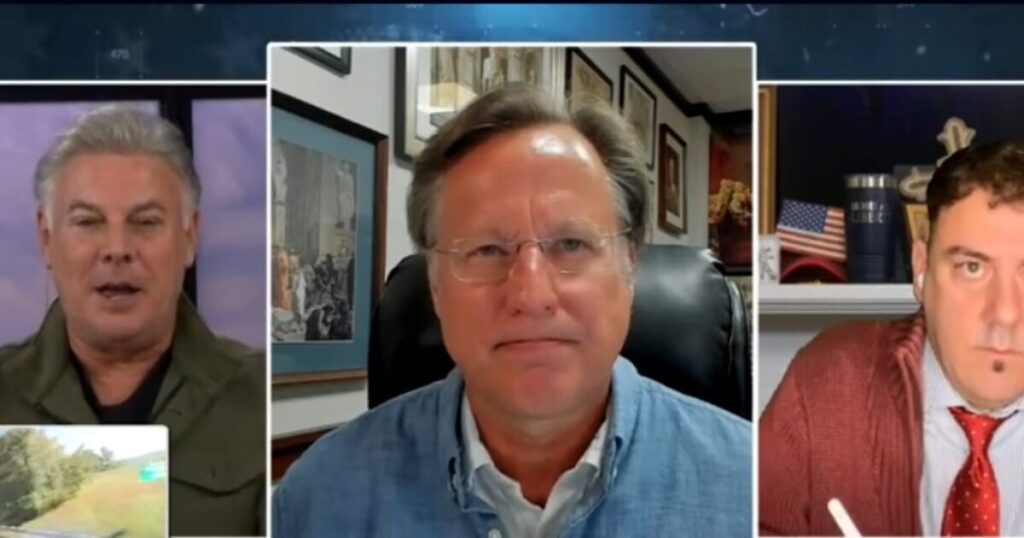On October 21, 2024, a compelling dialogue emerged on War Room, featuring guest hosts David Brat and Ben Harnwell alongside preacher Lance Wallnau. The discussion revolved around the recent actions of Vice President Kamala Harris and what was perceived as her persecution of Christians. The catalyst for this discussion was an incident at a college rally where Harris mockingly addressed Christian students who expressed their faith by declaring, “Jesus is Lord.” Brat highlighted the significance of the moment, expressing his shock at the open dismissal of religious sentiments by a high-ranking government official, stating, “In the history of American Government, I have never heard the quiet part out loud.” The gathering of voices became a crucial moment of confrontation between the government’s role and religious expression in contemporary society.
Pastor Wallnau seized this opportunity to emphasize the repercussions of Harris’s antagonistic stance towards Christians. He articulated that her actions essentially communicated to those who follow Jesus that they were unwelcome in spaces traditionally meant for open dialogue and acceptance. Wallnau remarked on the gravity of Harris’s dismissal, indicating that it implied a broader societal message: “If you are following Jesus, you are in the wrong religion, buddy.” He contended that this incident was emblematic of a growing hostility towards Christian beliefs within American government and culture, marking a potential pivot point in the treatment of religious individuals in public spaces.
The discourse turned to Harris’s decision to skip the Al Smith dinner, a prominent Catholic charity event in New York, which Wallnau viewed as a further indication of her estrangement from the Catholic voter base. He noted that while Joe Biden maintained connections with Catholic constituents, Harris seemed to ambivalently sever those ties. Wallnau warned against the repercussions of her disconnect from this influential demographic, suggesting that her choices could alienate her from potential supporters and lead her to pursue populist affiliations at her own peril. His reflections on the Al Smith dinner underscored the importance of maintaining relationships within political spheres, particularly among constituents who identify deeply with particular faiths.
The discussion also ventured into the broader ideological conflict present in the American political landscape, depicting a stark divide between the values of Marxism and Christianity. Wallnau elucidated that Marxism is principally driven by a quest for power, whereas Christians seek the protection of their freedoms and beliefs. He articulated that Christians had historically been disengaged from political arenas until their beliefs were directly threatened, showing the evolution of a narrative where the church felt compelled to defend itself against encroaching governmental ideologies. This insight presented a critical lens for understanding why religious individuals may now engage more actively in political discourse and advocacy.
Furthermore, Pastor Wallnau posited that the left had evolved into its own form of religion, complete with its own constructs of morality and conformity. He explained that this ideological framework seeks to impose a set of beliefs that individuals must adhere to in order to be accepted within societal structures, likening it to traditional religious tenets. He stated that the absence of a divine authority has led to the government assuming the role of deity, illustrating a profound shift in society’s foundational beliefs. In this light, the political landscape becomes a theatre of belief systems where the adherence to certain ideologies is crucial for social acceptance.
In conclusion, the War Room discussion among David Brat, Ben Harnwell, and Lance Wallnau highlighted the unsettling trend of governmental figures publicly ridiculing religious beliefs, as demonstrated by Kamala Harris’s recent actions. The dialogue unveiled not only the implications of her behavior for Christian students but also illuminated the broader tensions between Marxism and Christianity in the political arena. Wallnau’s assertions pointed to a significant ideological shift, indicating that societal acceptance increasingly revolves around specific belief systems that echo the traits of religious adherence, reinforcing the notion that faith and politics are becoming increasingly intertwined in contemporary discourse. The conversation ultimately urged believers to remain vigilant and engaged in defending their rights and beliefs amid a changing cultural landscape.

